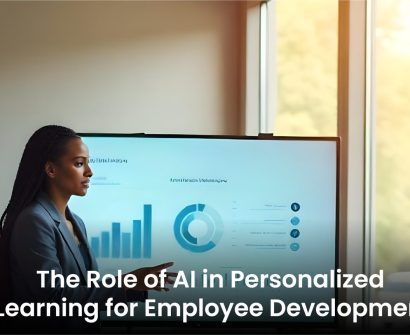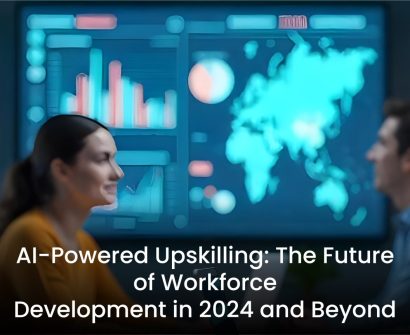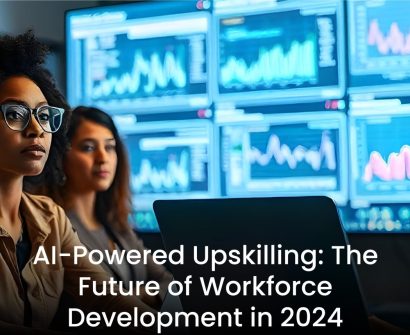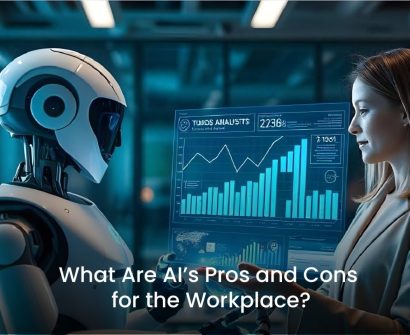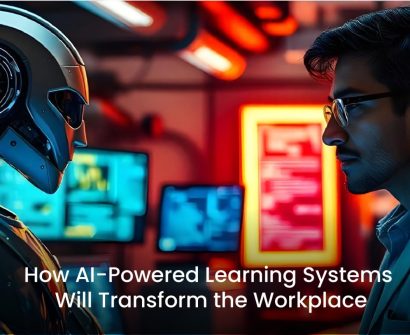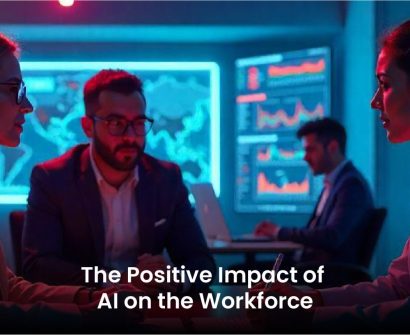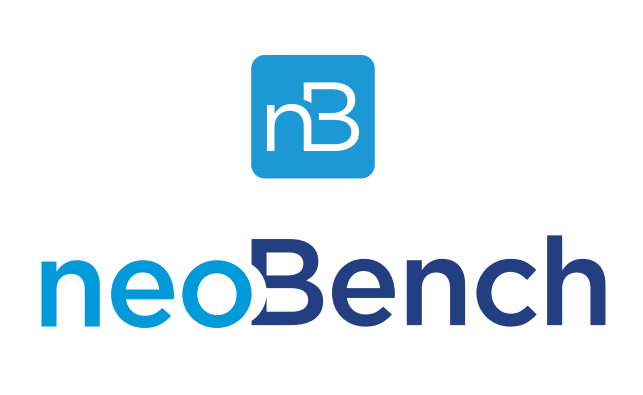
How is AI Used in Training Employees?
Maintaining employees with the required skills and expertise becomes increasingly important in the fast-changing corporate world of today. Though successful, conventional training approaches can suffer from high prices, limited time, and a lack of personalizing ability. Here artificial intelligence (AI) comes in to transform the training scene and provide companies with creative approaches for staff development. This blog will look at the several ways AI is revolutionizing employee development and the reasons companies in all kinds of fields now find it to be a crucial instrument.
How is AI Transforming Employee Training?
Particularly in the sphere of training and development, artificial intelligence has quickly become a game-changer in how companies run. Companies may now present better, more effective, and interesting training programs by using artificial intelligence. The days of one-size-fits-all, static, training courses are long gone. Personalized learning, real-time feedback, and interactive experiences brought in by AI mark a new age.
Here we will discuss some of the most notable ways AI is changing staff development and the main advantages it presents.
How AI Will Shape Employee Training in the Future
The conventional training scene is being transformed by artificial intelligence’s capacity to customize learning, automate material generation, and measure development in real-time. It helps businesses to provide customized chances for ongoing learning and development for each particular employee. Using AI, companies can guarantee a highly qualified staff, scale their training initiatives, and save expenses. Learn how companies globally adopt AI for training
Let’s explore the main ways AI is transforming employee development:
1. Personalized Learning Paths
Personalized learning paths produced by AI are one of its main benefits for staff training. Many times, conventional one-size-fits-all training courses neglect to meet specific learning requirements. By using data analysis and machine learning, AI can detect individual preferences, abilities, and shortcomings in every employee. This guarantees that staff members get the most pertinent information by customizing the training materials to their particular learning style.
An AI-driven platform, for example, may monitor employee development, modify work complexity, and suggest further resources depending on learning pace and performance. This guarantees that every staff member has the required support to thrive and results in a more stimulating and efficient learning environment.


2. AI-Powered Virtual Tutors and Chatbots
Virtual instructors and chatbots driven by artificial intelligence are changing how businesses provide instruction. These platforms are open 24/7 and provide quick answers to questions as well as direction for staff members through independent training courses. Simulating human-like interactions, virtual instructors provide explanations, question answers, and real-time comments.
Throughout the training process, chatbots may also automatically do routine chores, including answering often requested inquiries (FAQs). This leads to a more engaged and interesting classroom, thereby reducing the need for human trainers to constantly monitor development.
One excellent illustration of this AI-driven training support is the application of conversational artificial intelligence, which improves learning effectiveness. Chatbots enable staff members to seek assistance anytime they run into problems, therefore eliminating the need to wait for an instructor’s availability.
3. Gamification and AI-Enhanced Engagement
Gamification components in training have shown to increase employee involvement; AI helps to raise that degree. By customizing game-like scenarios to meet an employee’s learning style, ability level, and preferences, AI helps to create an immersive and enjoyable learning environment.
AI-powered systems may, for example, examine staff behavior and modify game dynamics to offer ideal challenges, incentives, and motivation. This not only increases retention but also makes the learning process more fun, therefore motivating staff members to take part in training courses.
4. Intelligent Content Creation with AI
Creating engaging and effective training materials can be quite resource-intensive. By creating customized content via methods like natural Language Processing (NLP) and machine learning, artificial intelligence streamlines this process. Artificial intelligence solutions greatly reduce the time and effort required by automating the production of video tutorials, quizzes, and training materials for HR departments or learning and development teams.
One prominent example is AI video production tools like Synthesia, which let companies produce AI-generated movies for training purposes. Companies may readily produce quality training materials at a tenth of the expense of conventional video production by mixing pre-recorded texts with AI avatars.
Furthermore, AI may examine past training session data to find knowledge gaps and create fresh material to cover those gaps, therefore guaranteeing employees’ ongoing learning and development of pertinent abilities.


5. Virtual and Augmented Reality (VR/AR) Training
Staff training courses are gradually incorporating AI-driven technologies like augmented reality (AR) and virtual reality (VR). While AR layers digital information over the actual world, VR gives workers realistic, hands-on training experiences in a virtual setting.
Safety training, for instance, uses VR to let staff members experience risk-free, controlled, harmful situations. By means of individualized feedback and analysis of employee performance during these simulations, artificial intelligence algorithms assist individuals in enhancing their skills and decision-making capacity.
6. Continuous Learning and Upskilling through AI
Encouragement of lifelong learning is one of the most important functions AI serves in employee development. Employees in sectors where new technology and trends show up regularly have to be current with the newest abilities. By continuously assessing work tasks and pointing out skill gaps, AI helps enable ongoing learning.
Platforms driven by AI can automatically suggest micro-learning courses depending on employment needs or career goals. These short, focused learning sessions ensure that employees gradually acquire new skills without feeling overwhelmed by lengthy training programs. It also keeps companies adaptable and guarantees that their staff stays competitive in a constantly changing environment.
7. Performance Tracking and Analytics
By means of data analytics, artificial intelligence offers thorough understanding of employee performance. AI can spot trends pointing out areas of strength and weakness by monitoring how staff members interact with training materials and assessing their development. These realizations enable managers to make data-driven decisions regarding employee development, including allocating staff members to tasks that fit their competencies or offering extra training when needed.
Real-time reporting lets management monitor training program success and modify them depending on performance measures of employees. More effective and focused training programs resulting from this maximize resources and learning outcomes by means of targeted approach.
8. AI-Driven Assessments
By automating skill assessments and feedback, AI has changed how tests are administered. By use of adaptive evaluations tailored to the knowledge and skill level of the employee, AI may provide more accurate evaluation of their skills.
Moreover, AI-powered tests may give staff members instant comments so they may immediately identify their areas of strength and development need. This ongoing cycle of feedback guarantees that staff members stay involved in their education and speeds up their development.
Conclusion: The Future of AI in Employee Training
Along with changing how companies teach staff members, artificial intelligence is also improving the efficiency, effectiveness, and individualized nature of learning. From virtual tutors and content production to immersive VR training and real-time performance analytics, AI is offering creative solutions that let companies create more competent, flexible, and talented workforce.
Companies that embrace these technologies will remain ahead of the curve as AI develops by fostering an always learning culture that encourages staff development. Including artificial intelligence into employee development is not just a trend but also a calculated investment in the direction of employment. Ready to revolutionize your team’s skills? Start with AI-powered training!


